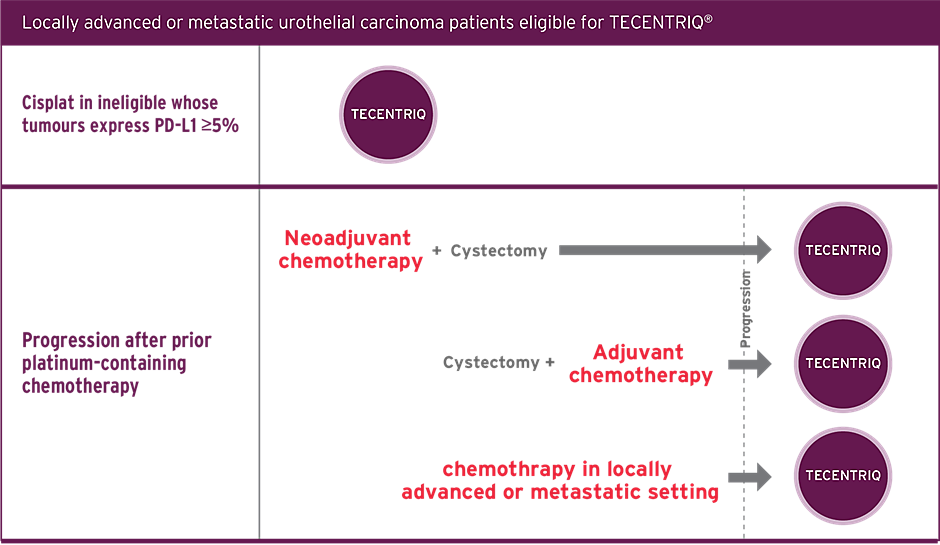Dr Axel Merseburger
My name is Axel Merseburger, and I'm honoured to present to you the just recently published data on SAUL, which has been published in European Urology and shown at the EAU Congress just recently in Barcelona, Spain. SAUL is a prospective phase III trial on atezolizumab in real-world patients in metastatic urothelial carcinoma.
The patients were treated with atezolizumab in the standard dose every three weeks, and primary endpoint is set as safety with a lot of interesting secondary endpoints like overall survival, progression-free survival as shown in this slide.
In this slide you see the baseline characteristics of the treated patients. As you can see here, we really have real-world population.
In this slide we see the most common adverse events, more than 10%. Uniquely, we displayed all the adverse events, not only the treatment-related. However, at the bottom of the slide you see the treatment-related grade 4 and 5 adverse events, which are few. So atezolizumab, in conclusion, is well tolerated in this special study population.
Here you see the overall survival, a secondary endpoint after a median follow-up of 12.7 months, which is still pretty short, the chosen overall survival of 8.7 months, and 41% are still alive after 12 months of treatment, after the first year. So also a good signal with regards to the secondary endpoint overall survival.
On the right you see we have not reached the median duration of response. However, disease control rate is 40%.
Here you see the safety overview of subgroups with special interest. In general, we're looking at the numbers atezolizumab treatment is well tolerated. In the bar on the bottom you see that discontinuation rate in those subgroups is very low.
Here we see a visualisation of overall survival in the subgroups of special interest. The 10% of patients with ECOG performance status 2 are difficult to treat, and we see here that they did less well than the overall population. On the other hand, patients without immune disease seemed to do very well on atezolizumab.
Here you see the efficacy in the IMvigor211-like population. In the slide we really tried to identify the patients that would have been eligible for the IMvigor211 trial, so not the patients having special conditions. You see in this trial population we reached a median overall survival of 10.0 months. After one year, 12 months OS, 46% of the patients were still alive.
Here we see the overall survival in the SAUL trial in context of randomised phase III trials, surely acknowledging the limitation of this indirect comparison.
In conclusion, SAUL is the largest prospective clinical trial in immunotherapy in advanced urinary tract carcinoma. We have demonstrated that atezolizumab is tolerable and effective treatment even in complex and comorbid patient populations. Efficacy overall and in the IMvigor211-like subgroup is inconsistent with previous pivotal trials on PD-L1 and PD-1 inhibitors in urothelial carcinoma.
These results support the use of atezolizumab in urinary tract carcinoma, including patients with limited treatment options.






























